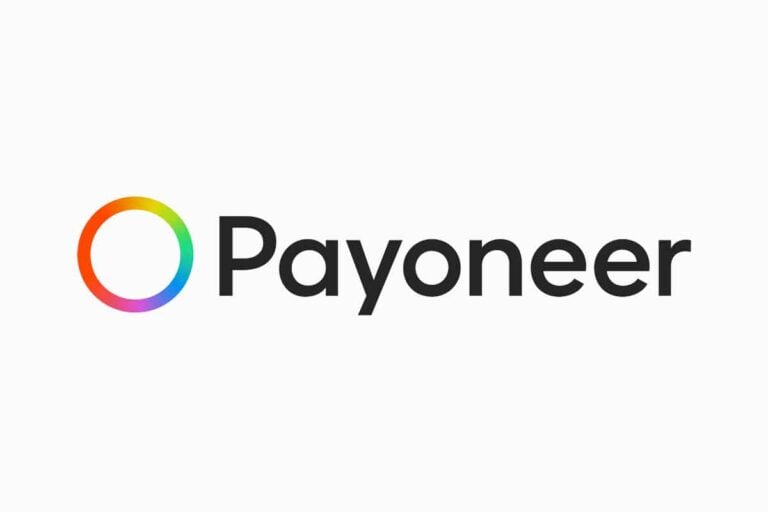The financial landscape has been radically transformed over the past decade, with FinTech firms such as Payoneer leading the charge. This shift has been particularly beneficial for businesses, offering streamlined banking services with often greater flexibility and lower costs than traditional banking. This review will explore the services offered by Payoneer, delving into its pros and cons, its products, its pricing structure and potential alternatives.
We provide a comprehensive review for businesses considering using Payoneer as their financial service provider.
 | Tide Business Bank Accounts ✓ Free, Plus, or Pro Account ✓ iOS & Android Mobile App ✓ Upload & Auto-Match Receipts Pricing Trial period Contact | |
 | Card One Money ✓ No Credit Checks ✓ Simple Fees ✓ Up To 3.5% Cashback Pricing Trial period Contact | |
 | ANNA Money ✓ Apply In 10 Minutes ✓ Bookkeeping & Payroll Tools ✓ User-Friendly Mobile App Pricing Trial period Contact | |
 | HSBC Business Banking ✓ Business Current Account ✓ In-Branch, Online & App Banking ✓ FSCS Protected Pricing Trial period Contact | |
 | Metro Business Banking ✓ Business Current Account ✓ High Street Presence ✓ FSCS Protected Pricing Trial period Contact | |
 | Mettle Business Banking ✓ Business Bank Account ✓ Online & App ✓ Quick & Easy Application Process Pricing Trial period Contact | |
 | Monzo Business Banking ✓ Business Current Account ✓ Dedicated mobile app experience ✓ FSCS Protected Pricing Trial period Contact | |
 | Virgin Money ✓ Business M Account ✓ In-Store, Online & App Banking ✓ Insights & Forecasting Platform Pricing Trial period Contact |
Overview of Payoneer – what’s on offer?
Established in 2005, Payoneer has grown into a global platform providing business-to-business cross-border transactions in over 200 countries. The firm’s fundamental aim is to provide businesses with a simple, affordable and convenient way to get paid by clients overseas and to pay their own international suppliers.
The primary service offered by Payoneer is an online account which allows businesses to make and receive payments in foreign currencies, minimising the fees traditionally associated with international transactions. With Payoneer, businesses can invoice clients in their own currency, receive payments, withdraw funds and even make payments to suppliers, all in one place.
In addition, Payoneer provides multi-currency accounts enabling businesses to hold, manage, and transfer funds in multiple currencies across the globe. It also offers a prepaid MasterCard that can be used for online purchases or to withdraw cash from ATMs worldwide.
Importantly, Payoneer also offers value-added services like integrated payments API for eCommerce businesses, mass payout services, and working capital for businesses to grow internationally.
Pros and cons of Payoneer
Pros
- Global reach: Payoneer operates in over 200 countries and supports transactions in over 150 currencies. This makes it an excellent choice for businesses operating internationally.
- Simplified international transactions: Payoneer’s multi-currency accounts allow for easy invoicing and payments in multiple currencies, significantly reducing the fees and complications associated with traditional international banking.
- Integrated services: Payoneer provides value-added services such as integrated payments API, facilitating seamless transactions for eCommerce businesses. It also offers mass payout options, which is beneficial for businesses working with multiple international suppliers or remote teams.
- Working capital: Payoneer offers a capital advance service, allowing businesses to access funds based on their Amazon or Walmart marketplace sales. This is advantageous for businesses looking to grow and invest.
Cons
- Fees: While Payoneer does reduce the cost of international transactions, it still charges for its services. These include fees for ATM withdrawals, currency conversion, and receiving payments from non-Payoneer users.
- Customer service: Some users have reported that Payoneer’s customer service can be slow to respond to issues and queries.
- Transaction limitations: Depending on the region, there may be restrictions on the types of transactions you can perform, which may not be ideal for all businesses.
- Account closure: There have been instances of sudden account closures with funds being held, causing significant disruption for businesses.
Payoneer products and services guide
Payoneer provides a suite of services tailored to the needs of modern businesses, particularly those operating internationally. Here is a quick rundown:
Multi-currency accounts
Payoneer allows businesses to open accounts in multiple currencies, simplifying the process of making and receiving international payments.
Integrated payments API
This is particularly beneficial for eCommerce businesses. It enables businesses to streamline their payments, reduce administrative overheads and improve the customer checkout experience.
Mass payout services
Payoneer enables businesses to make multiple payments simultaneously, a feature that is highly beneficial for businesses with international suppliers or remote teams.
Working Capital
Based on marketplace sales, businesses can access funds to grow and invest. It’s a flexible way to finance business growth, with repayments automatically deducted from marketplace sales.
Payoneer MasterCard
This prepaid card allows businesses to make purchases online or withdraw cash from ATMs around the world. It can be particularly useful for businesses with frequent travel requirements.
Payoneer pricing, fees and charges explained
While Payoneer offers a cost-effective solution for international business transactions, it’s crucial to be aware of its pricing structure:
- Receiving payments: Payments received from another Payoneer customer are free. However, receiving payments from customers using credit cards will attract a fee of 3%, while receiving an eCheck incurs a 1% fee.
- Making payments: Payments to other Payoneer customers are free, but transferring to a bank account will incur a fee of up to 2% above the mid-market rate.
- Currency conversion: Payoneer charges up to 2% above the mid-market rate for currency conversions.
- ATM withdrawals: Using the Payoneer MasterCard to withdraw cash will incur a $3.15 fee per transaction.
Alternatives to Payoneer
There are several alternatives to Payoneer worth considering:
- TransferWise: Now known as Wise, this platform offers multi-currency accounts and favourable exchange rates. However, it does not provide a dedicated MasterCard for business accounts.
- PayPal: A widely recognised platform, PayPal offers comprehensive services but often has higher fees, especially for international transactions.
- Stripe: Particularly suitable for eCommerce businesses, Stripe provides an integrated payments platform, but lacks some of the flexibility of a multi-currency account.
- Revolut: Revolut offers business accounts with multi-currency features and competitive exchange rates, but has been reported to have customer service issues.
Conclusion – Is Payoneer a good choice?
So what is the verdict of our Payoneer review?
For businesses that operate across borders and deal in multiple currencies, Payoneer presents a flexible and streamlined solution. It simplifies international transactions, reducing fees and minimising administrative burdens. Furthermore, the added features such as integrated payments API and mass payout services provide valuable tools for growing businesses.
However, it’s important to consider the potential downsides. These include transaction fees and reported issues with customer service. As with any business decision, the suitability of Payoneer will depend on individual circumstances. It’s therefore crucial to consider these points in light of your business’s specific requirements and objectives.
FAQ – Payoneer review
Payments received from another Payoneer customer are free. However, receiving payments from customers using credit cards incurs a fee of 3%.
Yes, Payoneer offers a prepaid MasterCard for businesses.
Yes, Payoneer offers a mass payout service, enabling businesses to make multiple payments simultaneously.
Payoneer provides capital advances based on your Amazon or Walmart marketplace sales.
There may be some restrictions depending on your region and transaction type.
Yes, Payoneer charges up to 2% above the mid-market rate for currency conversions.
Some users have reported slow responses to queries and issues.
While both offer similar services, Payoneer is often cheaper for international transactions. However, PayPal is more widely recognised.
There have been instances of sudden account closures with funds being held.
Yes, Payoneer offers a range of services that simplify international transactions, making it a good choice for businesses operating across borders.
Yes, Payoneer provides an integrated payments API that facilitates seamless transactions for eCommerce businesses.
Yes, you can use the Payoneer MasterCard to withdraw cash from ATMs worldwide. There is a $3.15 fee per withdrawal.
Yes, Payoneer’s multi-currency accounts allow you to hold, manage, and transfer funds in multiple currencies.
Payments to other Payoneer customers are free. Transfers to a bank account incur a fee of up to 2% above the mid-market rate.
Payoneer can offer more flexibility and lower costs for international transactions compared to many traditional banks. However, the suitability will depend on individual business needs.
Both offer multi-currency accounts and competitive exchange rates. However, unlike Payoneer, Wise does not provide a dedicated MasterCard for business accounts.
Yes, Payoneer offers an integrated payments API for eCommerce businesses and a capital advance service based on marketplace sales.
Yes, Payoneer supports transactions in over 150 currencies across 200 countries.
Yes, alternatives include PayPal, Wise, Stripe, and Revolut. Each has its strengths and weaknesses, so the best choice will depend on your business’s specific needs.
Yes, Payoneer offers customer support. However, some users have reported slow response times and issues with resolving queries.

